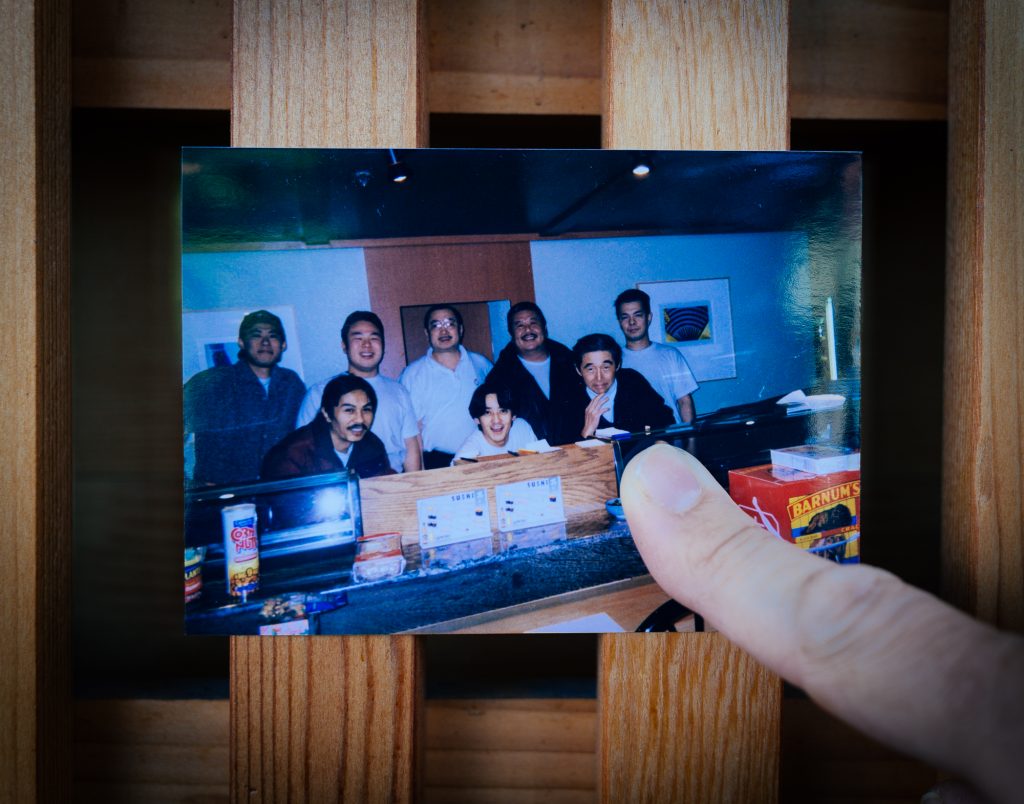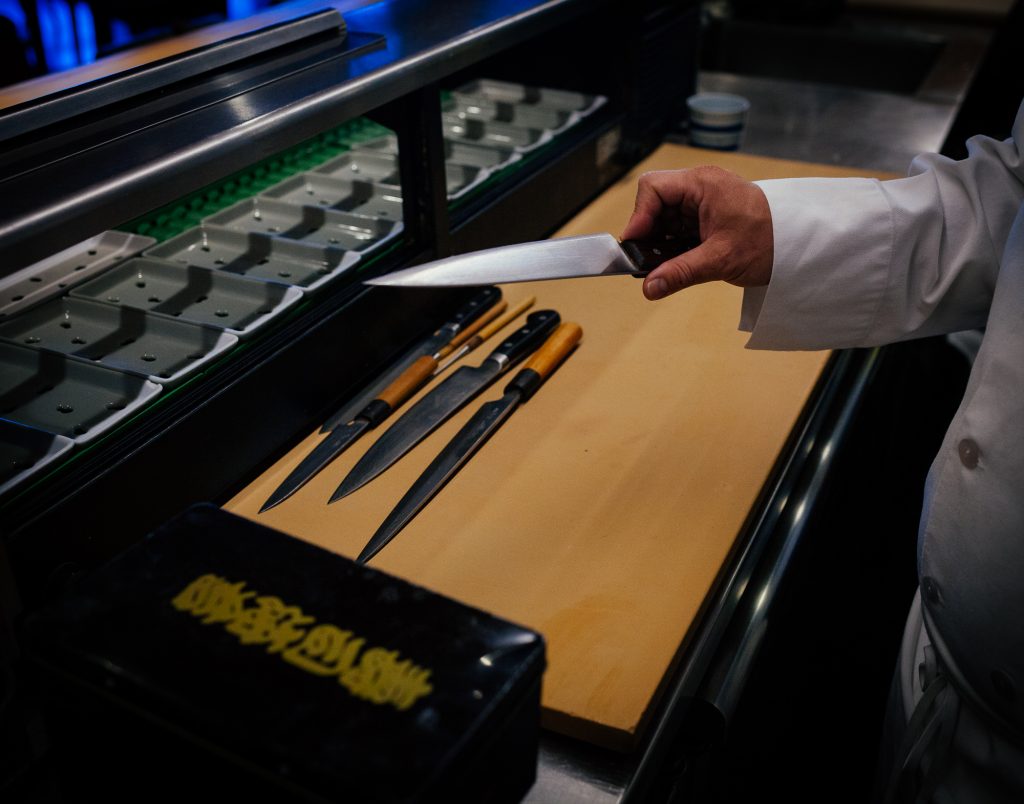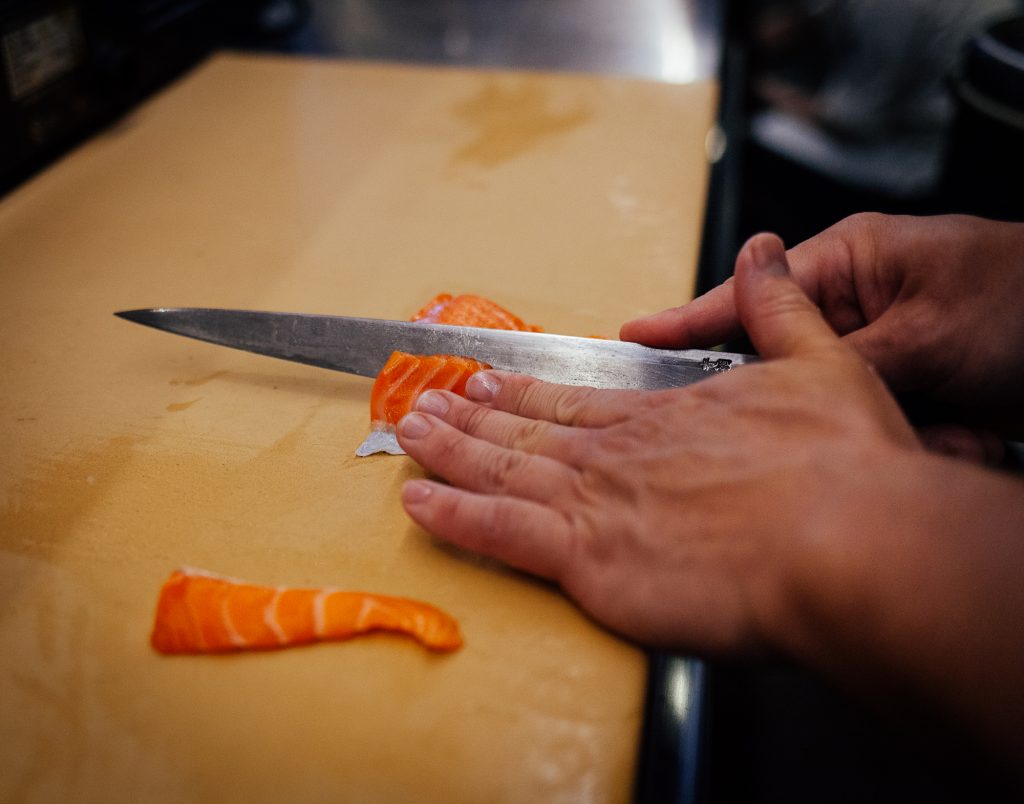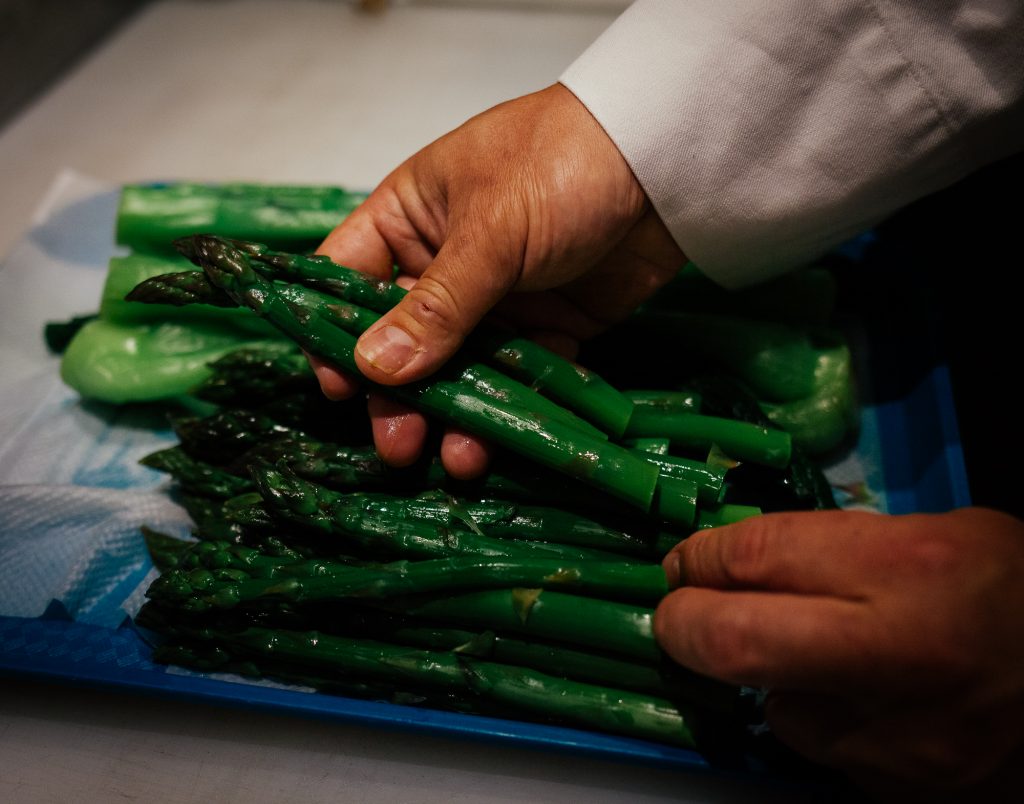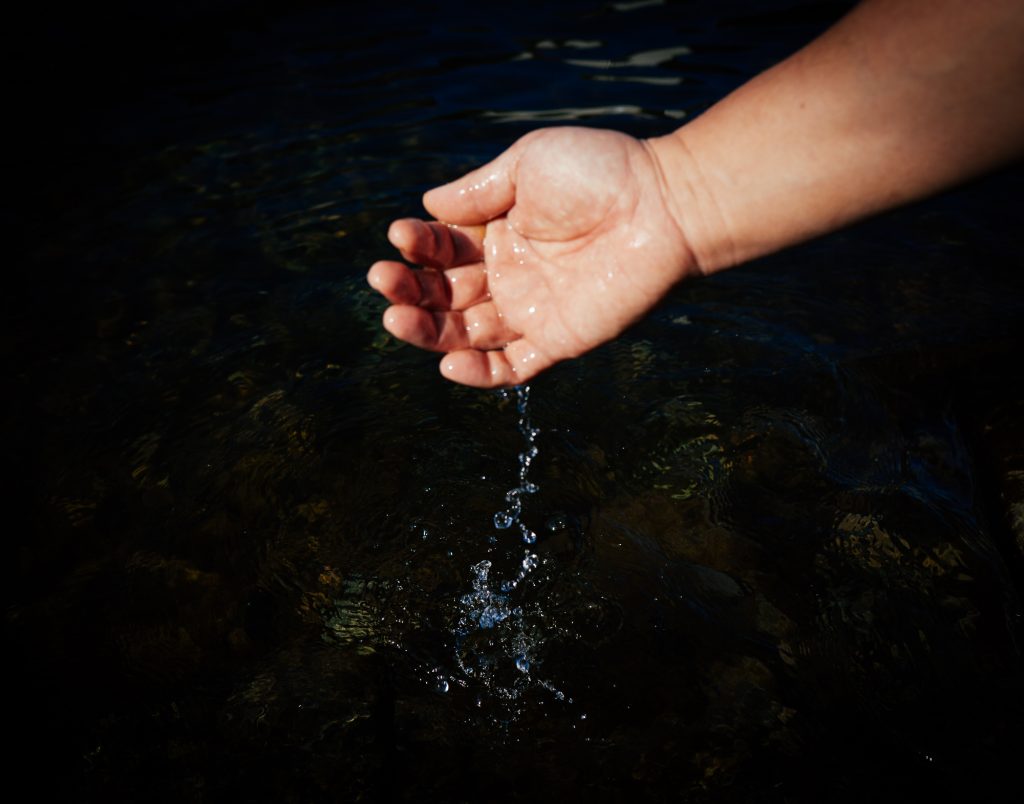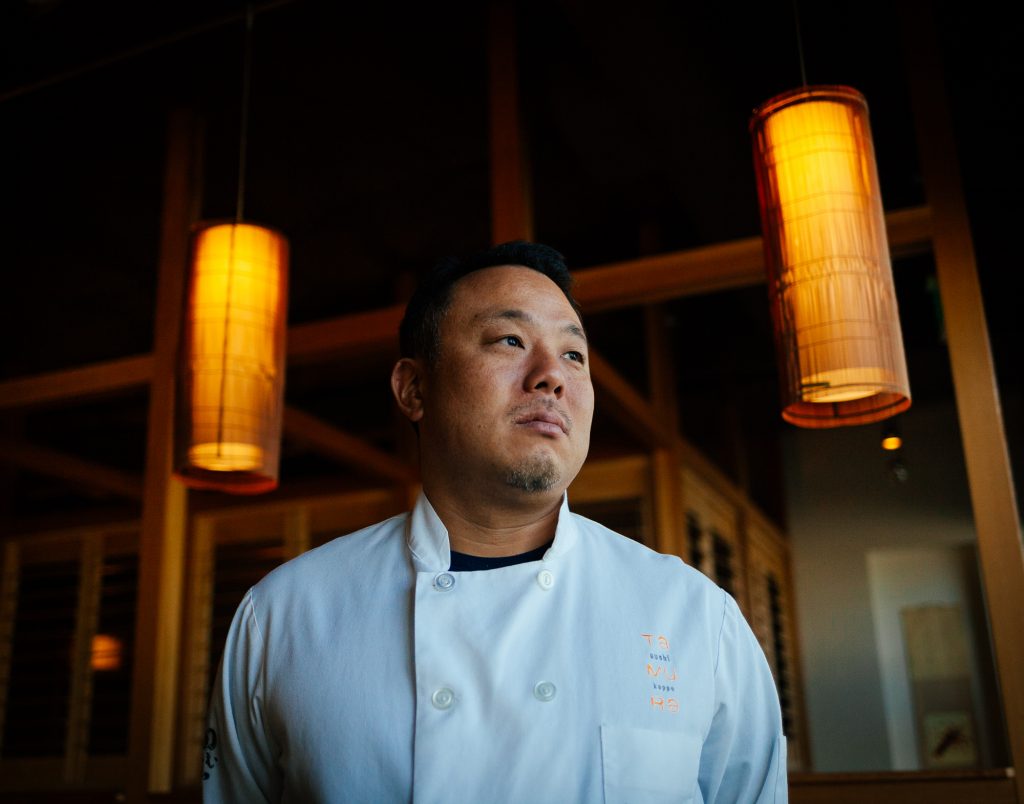
Childhood
Taichi was born in the 1970s and grew up in Yamashina-Ku, Japan. His hometown is now known as a bedroom community for commuters to Kyoto. Taichi remembers when it was mostly farms and rice paddies. Near his parents’ house, there was a small brook where he used to catch freshwater crabs, tadpoles, and any other creature he could find. When Taichi goes back to visit, he laments the changes to this environment.
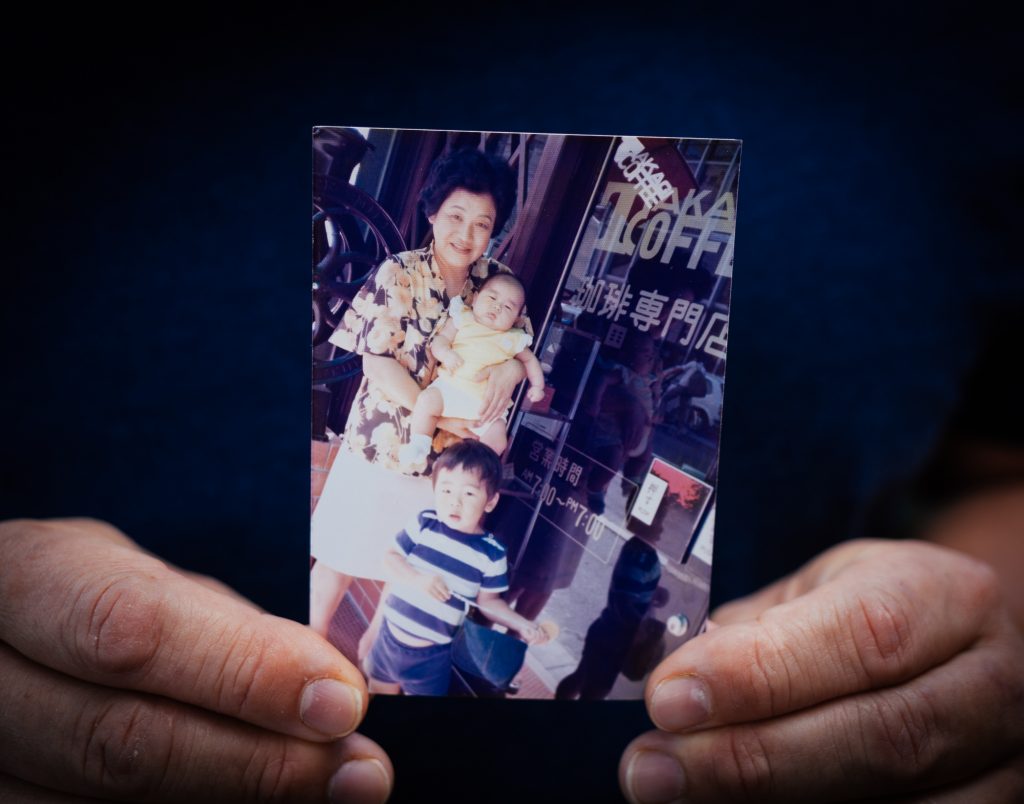
Grandma Emiko
Taichi was close to his Grandma Emiko, growing up. She was a well-known tailor in the neighborhood, who with her heavy-duty cast iron sewing machine, created clothes that lasted.
“She’s one of those ladies that had a hard life but was never bitter about it. Instead, she has a sense of humor.”
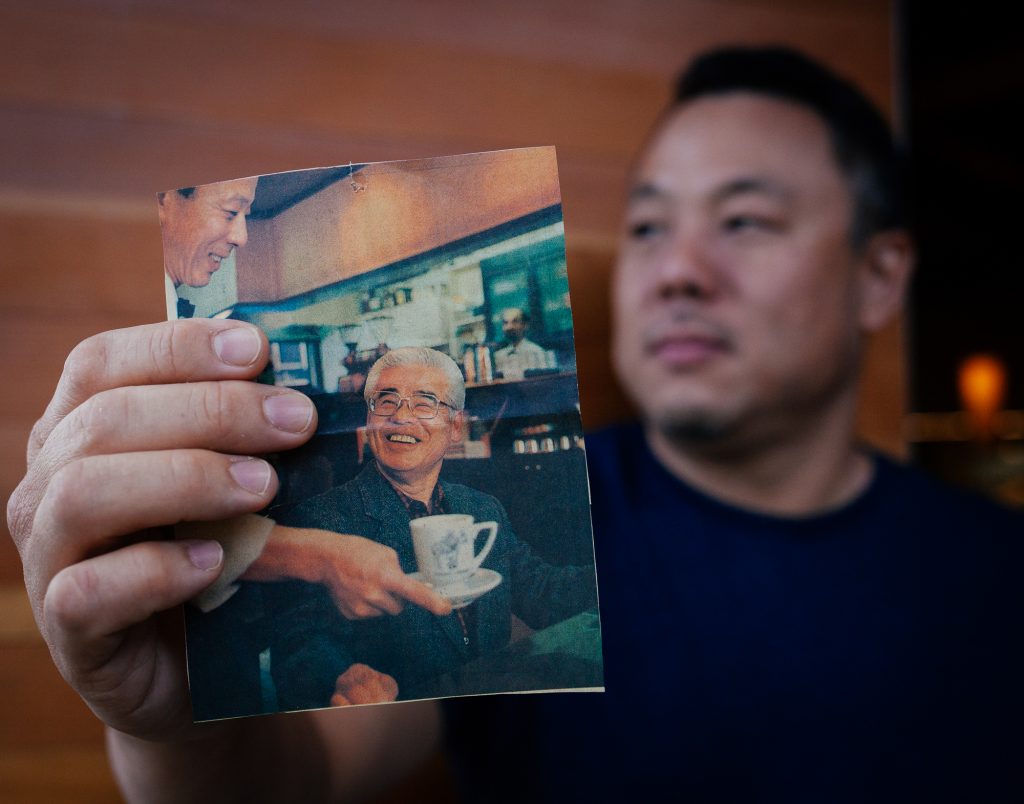
Japanese cafés
Taichi’s father, Jiro [serving coffee in the above photo], has always been a very ambitious man. A famous Japanese café called Inoda Coffee hired Jiro at only 15 years of age. Japan’s movie stars and wealthy business people would eat toast and drink coffee there: a real status symbol at that time. Jiro became the manager in his early twenties and met Taichi’s mother, Misa, who was working there as a server. At the age of 25, Jiro opened his own café, and then eventually another. Today, Taichi’s younger brother runs one of their cafés, and his father still runs the other.
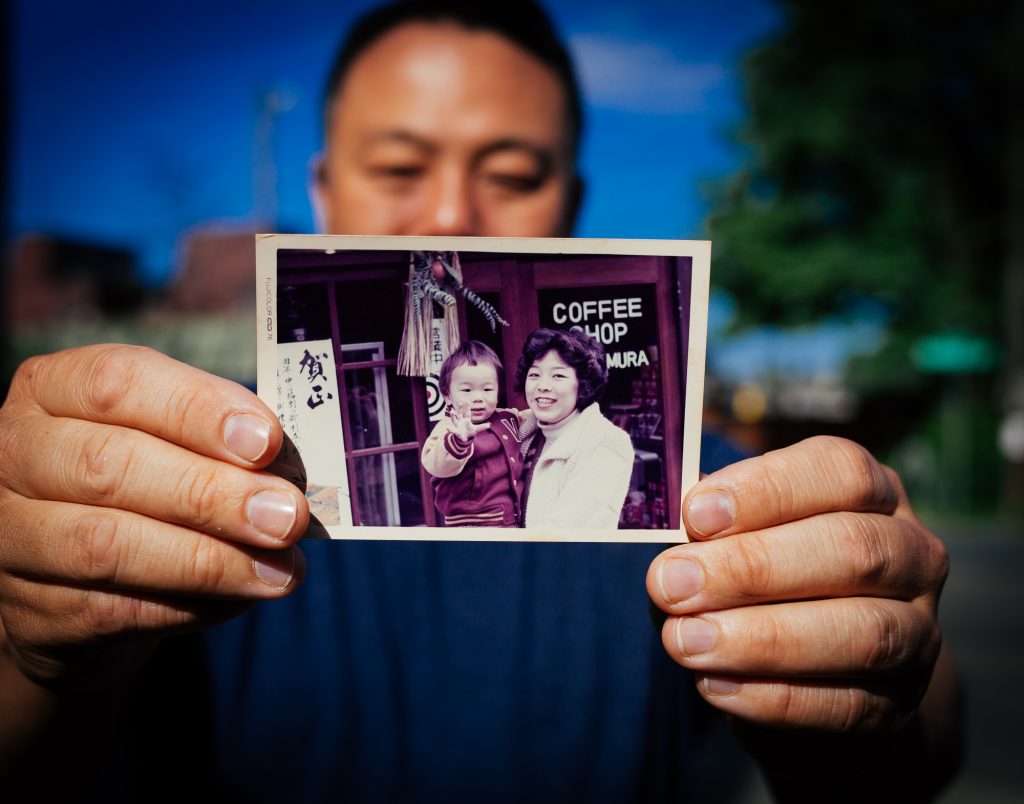
Connecticut Chocolate Cake
The family’s cafés were “western-style.” Taichi’s brother roasted the beans, and his mother baked. She was famous for her thick, rich flan cake and her “Connecticut chocolate cake.” Taichi has no idea why it was named “Connecticut.” Since he can remember, his summer job was at the café washing the dishes and delivering coffee, rain or shine, on an old beat-up bicycle.
“I never got paid, but I was fed good!” (audio below)
United States
It was a family trip to Disneyland when he was in tenth grade, which made Taichi seriously want to learn English. He remembers the frustration of seeing crowds of people with which he couldn’t communicate. He also wanted to see North America, so in 1990 he signed up for a summer homestay program in Seattle through the English conversational school he attended.
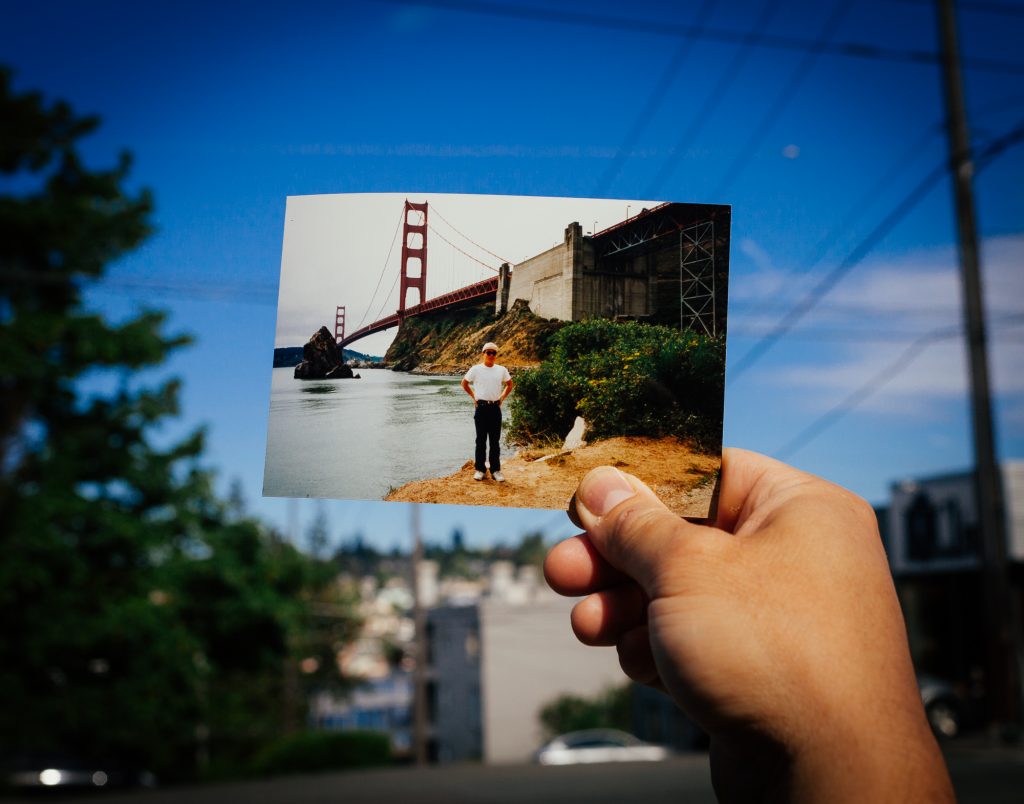
“I always loved the image of the Northwest – mountains, water, and clean air. Everything Kyoto didn’t have. Oh, I wanted to go to Canada. I wanted to go to Vancouver. I looked at the pamphlet and saw Seattle was cheaper and a 3-hour drive from Vancouver.” (audio below)
Fitting in
After his homestay, Taichi decided he wanted to spend his senior year of high school in the United States. Trying to fit in wasn’t easy, but Taichi imagines this is the case for most teenagers.
“For the first few months, in the lunchroom, it was always, ‘Who am I going to eat lunch with?’ Trying to learn Shakespeare in English as a Japanese kid was hard, but I absorbed everything like a sponge.”
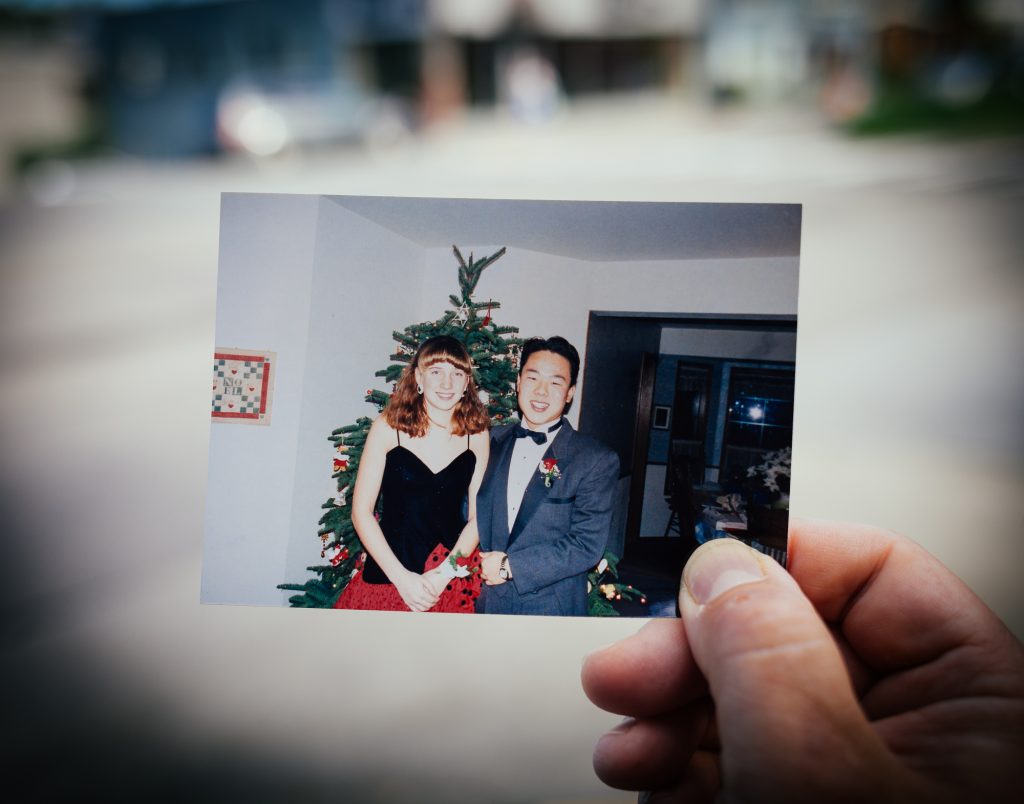
Being a good swimmer and joining the relay team helped Taichi make friends. Working as an assistant in the Japanese class and marking exams also helped, since other students “had to be nice” to him.
While in the United States, Taichi stayed with many different families: one Mexican-American, one Mormon, one vegan and liberal, and one conservative Christian. He says religion played an essential part in his first years in America.
“This country needs religious disciplines. In Japan, you don’t need to be religious, but there are all kinds of rules and customs. You are supposed to do things a certain way, and you have no idea why you are doing it. In the USA, I found religion plays an important role in providing guidance.”
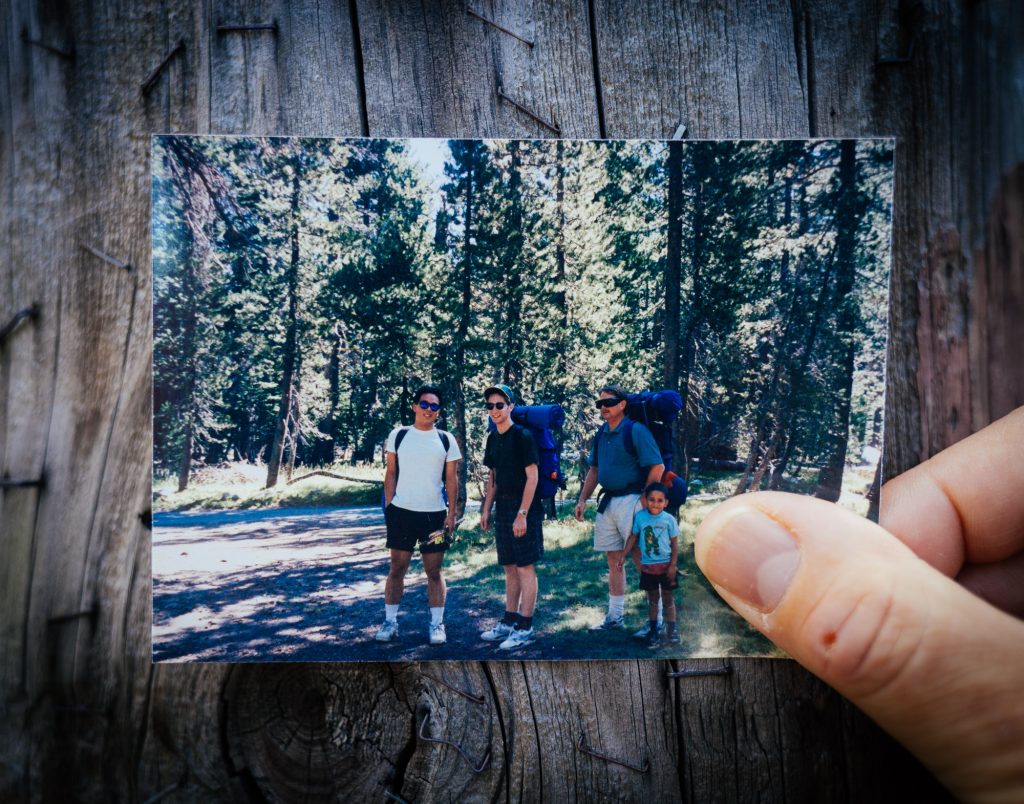
He remembers going to church with the Mormon family, and one time they all went on a church-hosted camping excursion.
“In the middle of the evening, they pulled down a screen and put on a movie about Joseph Smith [the founder of Mormonism]. It was educational. They did create many opportunities for me to talk to missionaries, but they never tried to force me into their religion.” (audio below)
After living with the Mormon family, he moved in with a conservative Christian family. Taichi remembers them telling him he would go to hell if he doesn’t convert, yet still, Taichi says they were friendly, and he appreciates that they were trying their best to “save” him.
Studying?
After high school, Taichi studied International Studies at Seattle University. On the first day of class, a lady approached him and asked if he would like a job at a Japanese restaurant. He felt a little guilty that his parents were paying for everything, and he wanted a new fishing rod, so he said yes. Before he knew it, he had a full-time job.
“I was working 40 hours a week, and at the same time, I was going to college. In my college years, I do not remember much about my campus life; I remember working in a Japanese kitchen.” (audio below)
Taichi wonders how he managed to graduate from college. He became a skilled chef, but regrets having never done “all those fun college things.”
“I don’t know how I did it working that much. I have to look at my diploma to believe it.”
Sushi God
Midway through college, Taichi started working under Shiro [pointed at in above photo], who Taichi regards as Seattle’s “Sushi God.” He started out working in Shiro’s canteen but longed to work alongside Shiro.
“Shiro is the happiest man I know, and he was making a lot of people happy at his sushi bar. He is introducing the beautiful food culture of Japan and people respect him. I was like, ‘I want to be happy like that guy.’ The day I graduated, I asked Shiro to train me as a sushi chef.” (audio below)
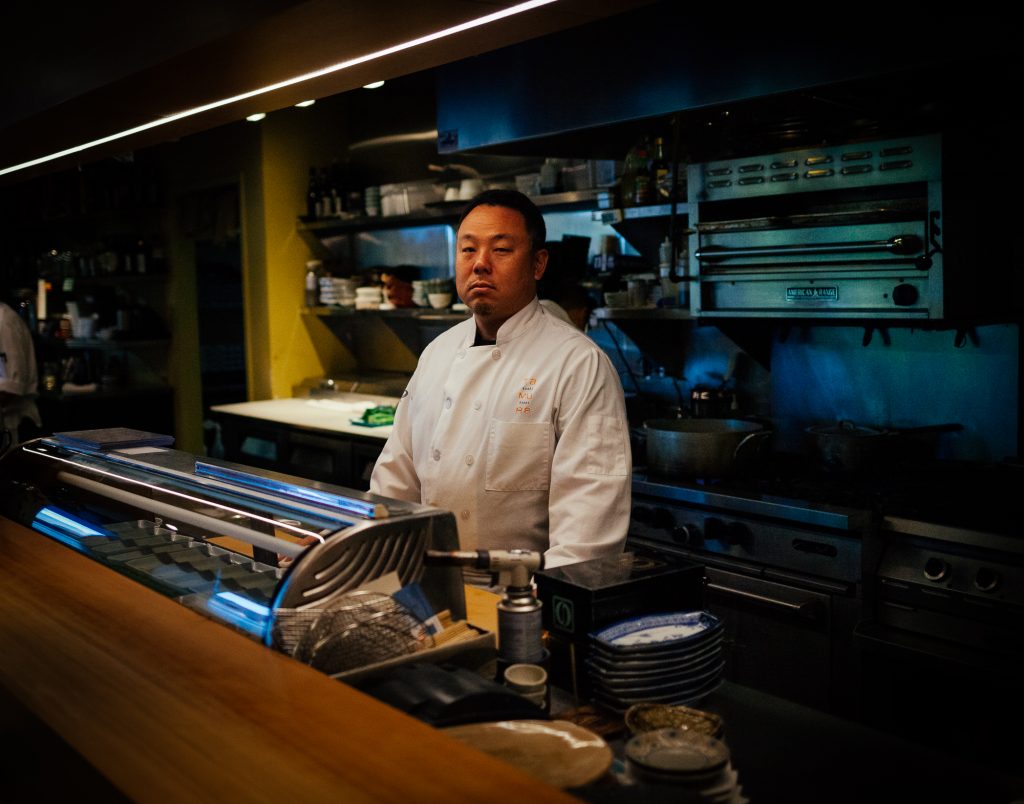
Sushi Kappo Tamura
After two years working alongside Shiro as a sushi chef, Taichi moved to another restaurant. A couple of years later, he received his green card [permanent resident card] and felt ready to open his own restaurant. It was 2001, the restaurant opened, and the city was experiencing an economic boom. Then 9/11 happened, and that boom stopped. Still, his restaurant survived, and they built a loyal customer base. Taichi believes this challenge made him grow as an owner and manager. The business environment eventually started to improve in Seattle, and Taichi bought his current restaurant, Sushi Kappo Tamura, in 2010.
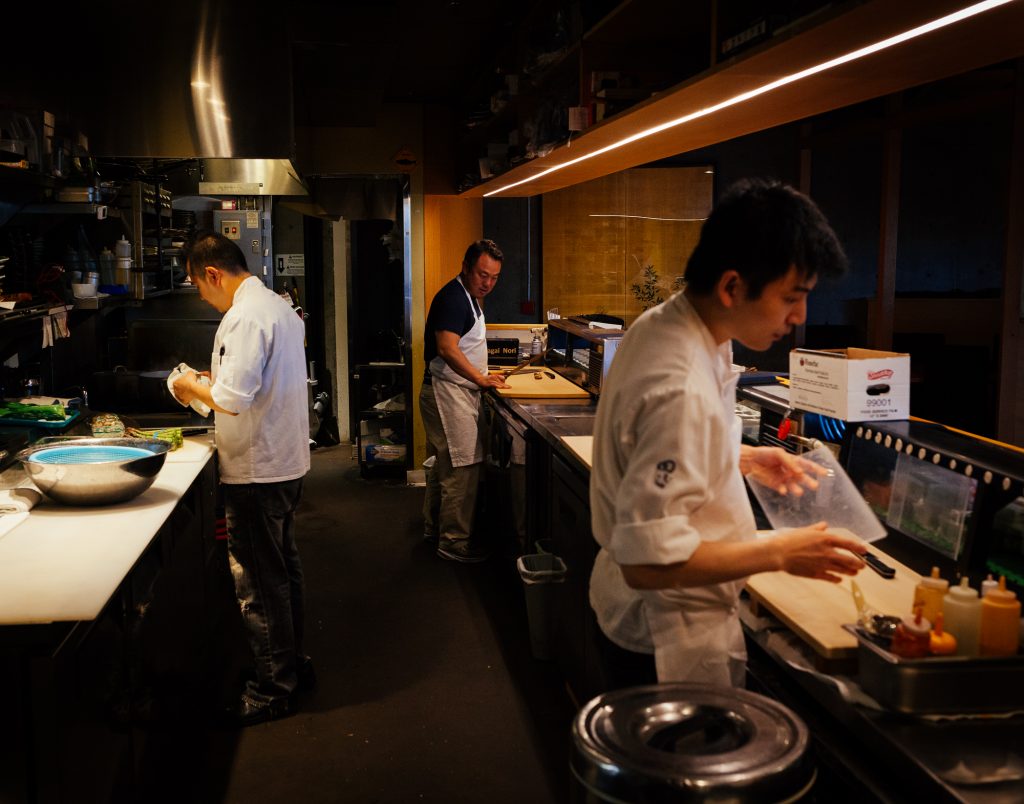
Taichi finds being a sushi chef to be a very intimate experience where you get to know your customers very well.
“They were single, they get married, have children, and now they come in with their children. One of the joys you have as a sushi chef is you are growing together with the community that you are serving. It is love. I’m someone they can always count on seeing and sharing their stories.”
Ingredients
Taichi considers himself a chef who is driven primarily by the ingredients themselves.
“If I see a beautiful fish, I want to serve sashimi or sushi with that. I don’t like fancy sauces or spices. I want to showcase the original flavor of the beautiful ingredients this area has to offer. To me, it is a crime to mask any of that.” (audio below)
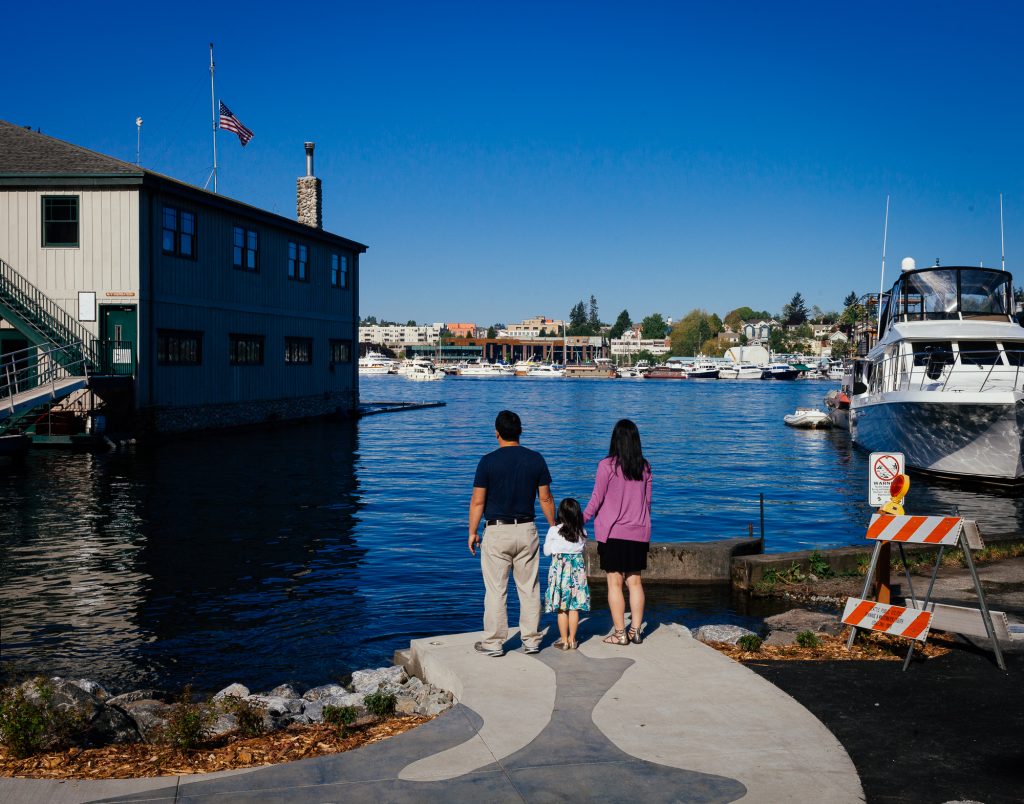
Meeting Kaoru
Taichi met his wife Kaoru, who is from Osaka, during the construction of his first restaurant in 2001. In 2012, their daughter was born in Seattle. They are creating opportunities for their daughter to connect with their Japanese culture while being raised in the United States. The public school she goes to has half-day Japanese immersion.
“Another beauty of American culture is how you can be as Japanese as you want, and that makes you American. You can feed her Japanese food three times a day, make her wear a kimono, and pound mochi for the New Year. It’s available because the Japanese community in Seattle does a good job.”
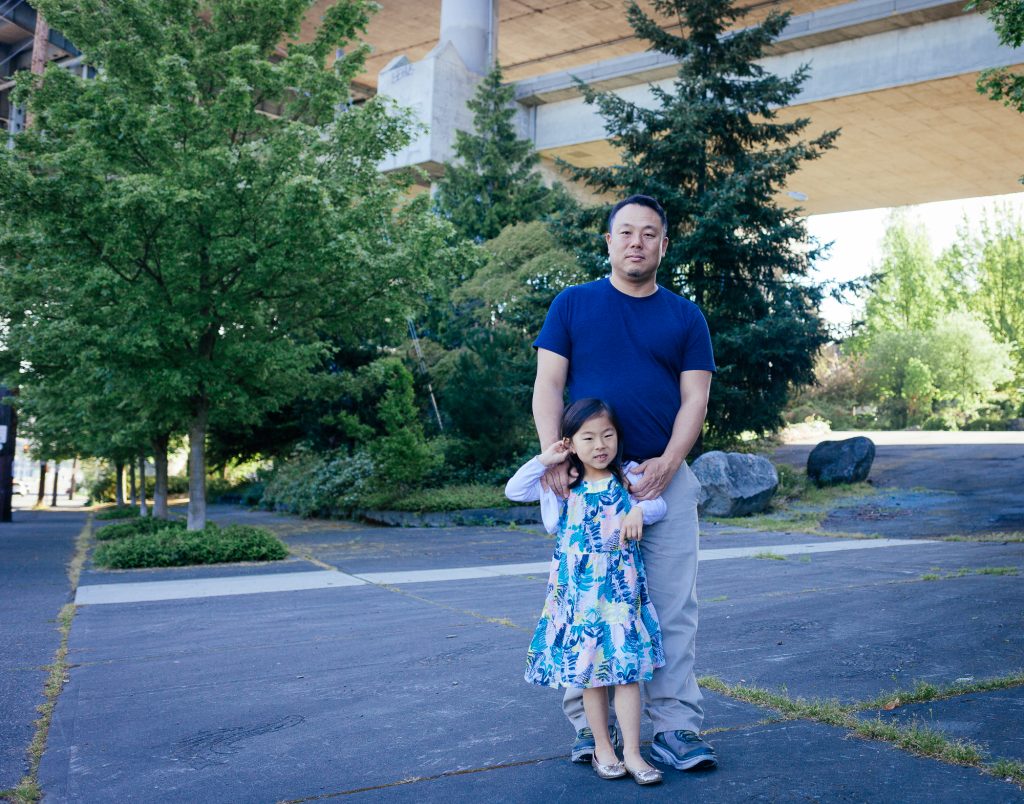
“The exposure to multiculturalism is great and something hard to find in Japan. Every kid has a different cultural background something I did not have when I was her age. One day she is going to say, ‘I come from a Japanese background,’ and it is up to her how much she is going to embrace that.”
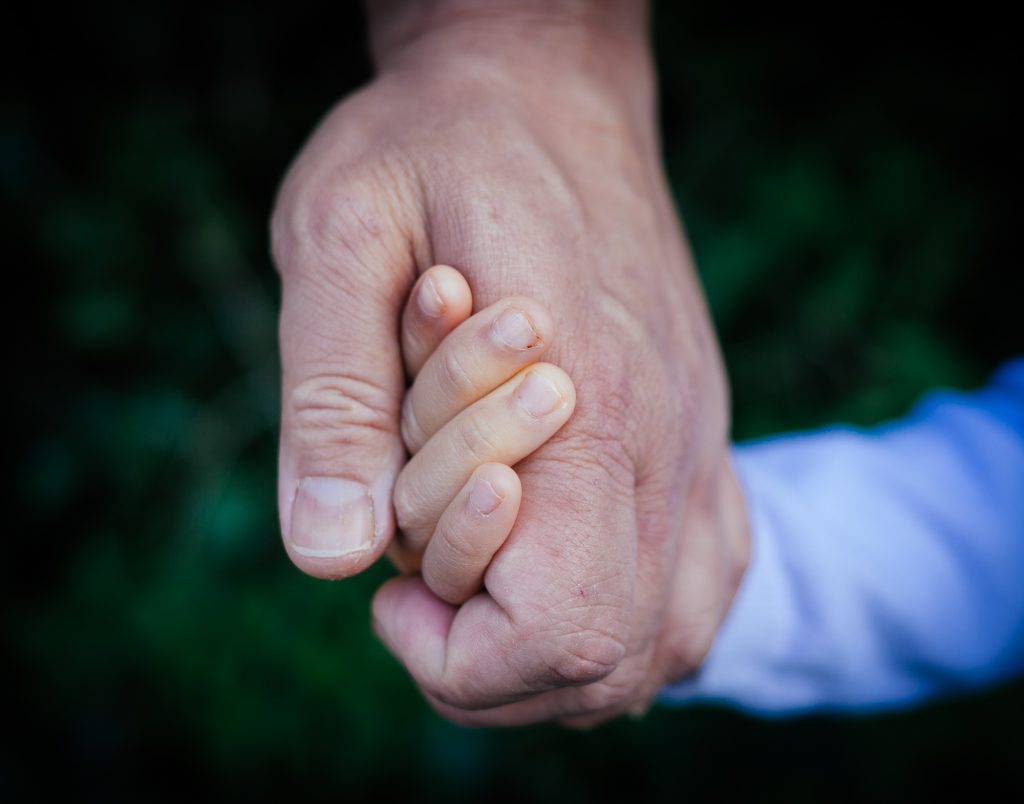
Being a Father
Taichi finds being a father to be both challenging and rewarding.
“I look at my daughter, and she looks exactly like me, which is unfortunate [laughing]! I want her to become an individual who can think and deal with real-life situations, so I tend to be hard on her.” (audio below)
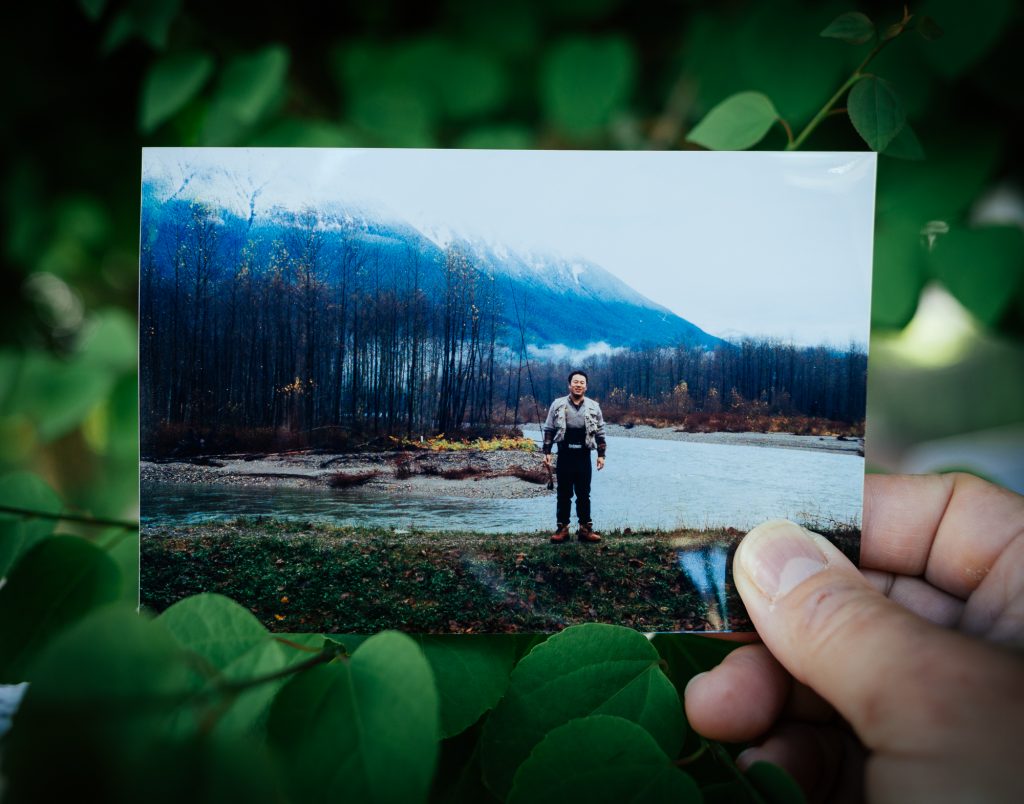
Fly Fishing
Taichi feels happiest when he is fly fishing – a necessity for his sanity.
“My favorite form of solitude is fishing the clear mountain streams for trout. If I can do that, I can balance my life – I am happy. When I fish, I just think about fishing. How can I get this fish to take my fly? You wake up early, drive to the river, get to a particular spot where you think there is fish, cast your fly in a perfect presentation, and if the trout takes the fly, that’s one of the happiest moments. After fishing, I feel re-energized and can go back to work with a smile on my face and make my customers happy. To me, that’s the American dream come true.” (audio below)
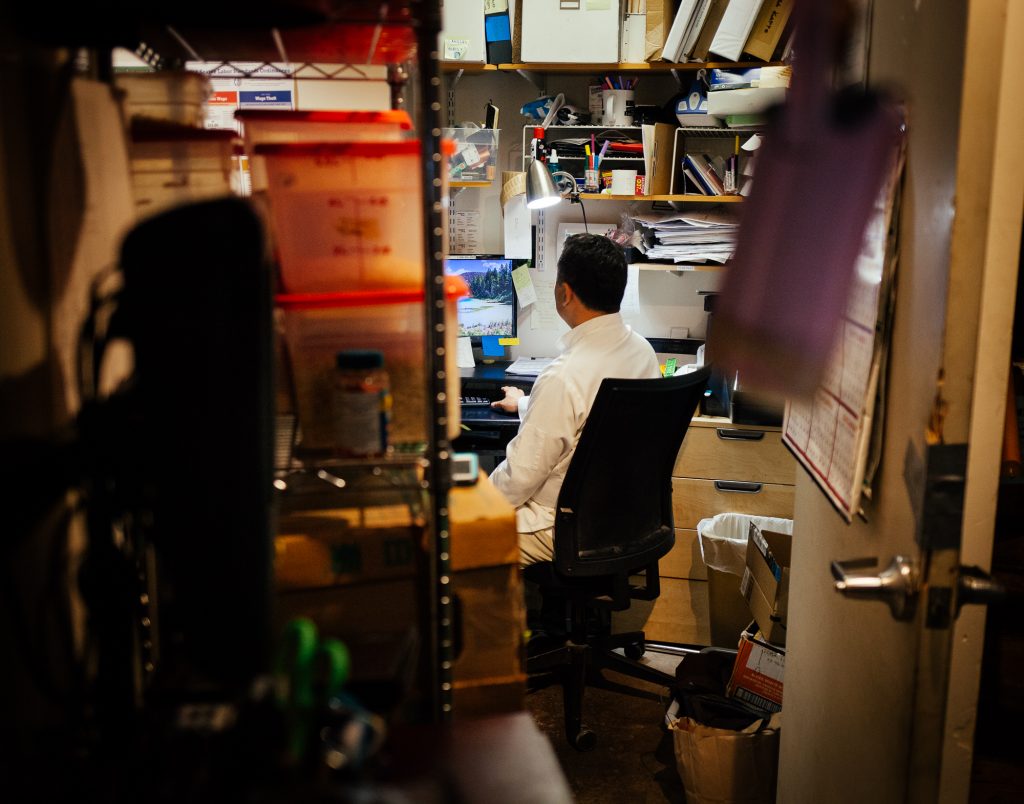
Pride
Taichi misses the professionalism and pride that people have in Japan. He explains how a garbage collector in Japan would take pride in how they collect it, and this pride results in greater happiness. He also misses the respect people have for elders in Japan and a healthcare system that takes care of them.
“I love America, but I haven’t given up my Japanese citizenship because if I become sick and am not able to physically work and lose health insurance, I don’t know what I would do. If I go back to Japan and I need senior care, the quality is nice and affordable. Here if you want nice elderly care, it is unbelievably expensive. I know because we had to look for that for my in-laws. I do miss that sense of security. What if I get hit by a car, and I don’t have insurance? What if my child becomes seriously ill?” (audio below)
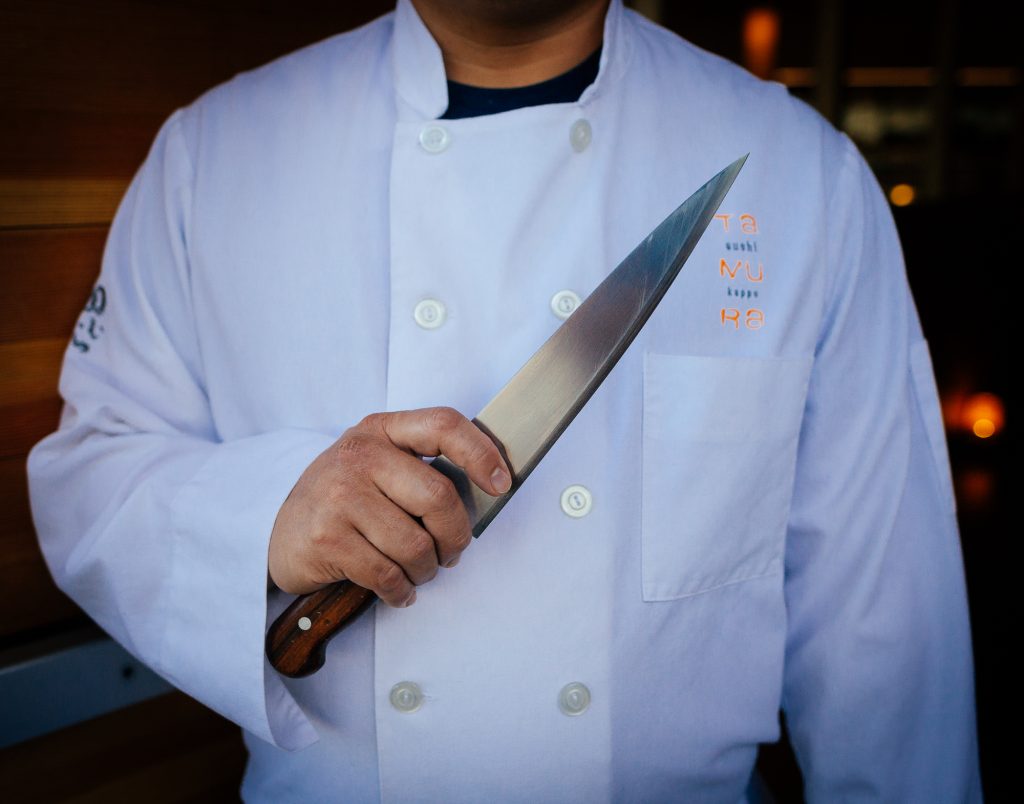
Safety
Taichi is also disturbed by America’s gun culture.
“It’s about people having guns in a critical situation. The idea that if he feels threatened, he might pull out his gun and shoot me, so I better shoot him first. That psyche is in nobody’s head in Japan because people don’t have guns. If I’m walking around Seattle, there is always a chance someone is going to pull out a gun and take my wallet. Someone might try to take my wallet in Japan, but they aren’t going to pull a gun on me.”
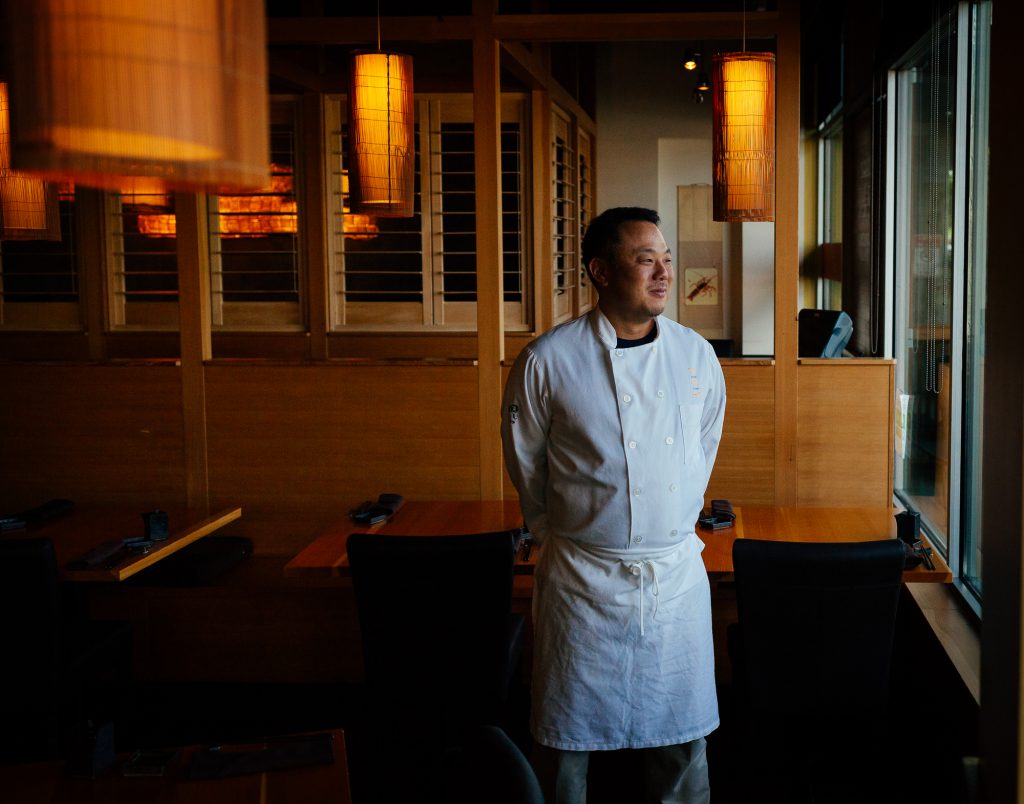
Seattle
Taichi loves Seattle, seeing it as a place where urban and outdoor life can be balanced. He says it is exciting times, to be in this growing city. He dreams of establishing a cuisine that you can only eat in Seattle.
“If Japanese people visit the city, and they eat this Japanese cuisine, it will be unique to Seattle.I want to make Seattle pride – American pride. Beautiful American food that is only available here.”
Future
Taichi hopes more people will take the time to consider the story of the food they eat, especially wild seafood like he serves at his restaurant. A “miracle” has to happen for that piece of sashimi to arrive on your plate. Taichi thinks food tastes better if you think about how lucky you are to have it. (audio below)
#FINDINGAMERICAN
To receive updates on the book release and exhibition of “Finding American: Stories of Immigration from all 50 States” please subscribe here. This project is a labor of love and passion. If you would like to support its continuation, it would be greatly appreciated!
© Photos and text by Colin Boyd Shafer | Edited by Janice May & Kate Kamo McHugh. Quotes edited for clarity and brevity.



